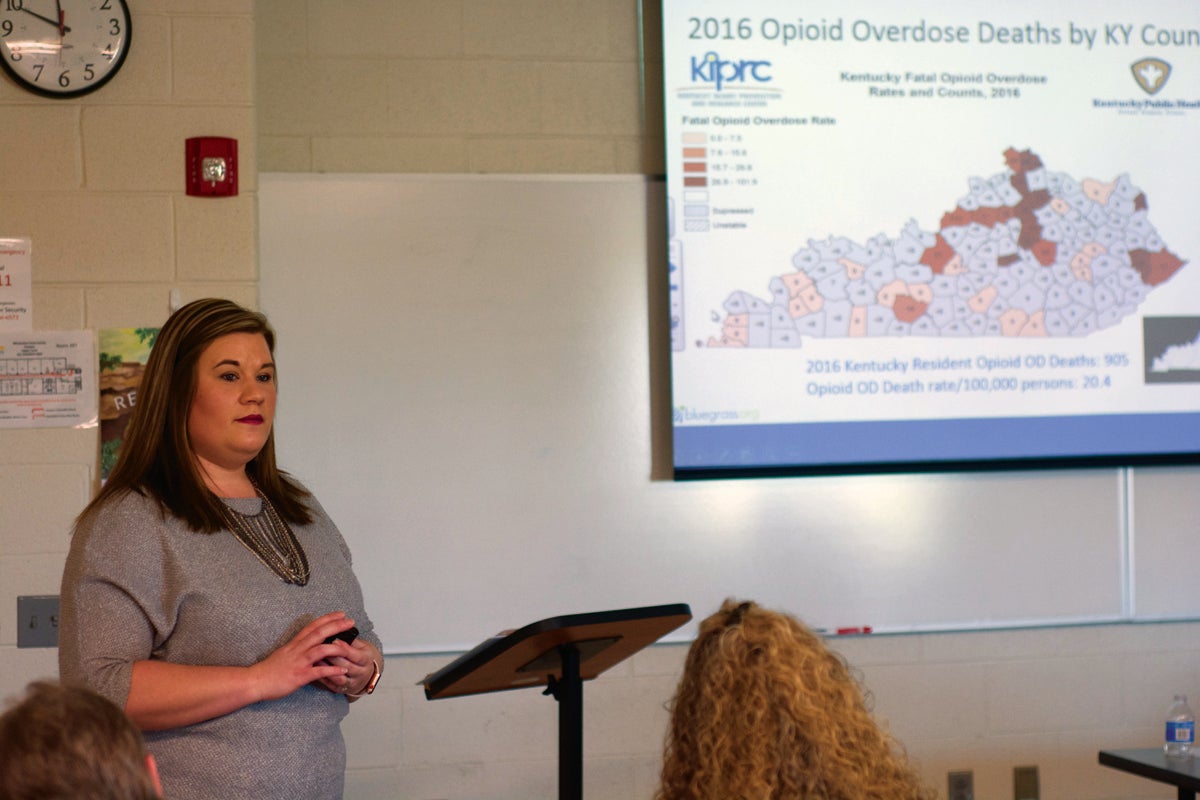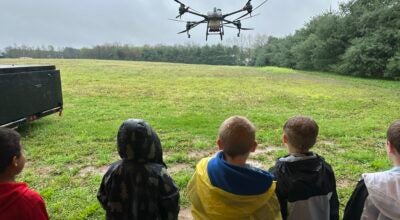Community learns more about opioid crisis
Published 9:26 am Friday, April 6, 2018

- Shaye Walker, prevention specialist at bluegrass.org, gave a presentation at the community Lunch and Learn: Addressing the Opioid Crisis at BCTC on Thursday.
Community members gathered around tables at Bluegrass Community and Technical College Thursday to have a frank discussion and learning session about the opioid crisis.
At the Lunch and Learn: Addressing the Opioid Crisis, Bluegrass.org Regional Prevention Specialist Shaye Walker gave a presentation on the state of the crisis and opened the floor to discussion and questions afterward.
She said the community lunch and learn is part of Kentucky’s Opioid Response Effort (KORE), a state targeted response to the opioid crisis grant. About 17 counties are participating, and each county receives a community training, prescriber training and a first responder training.
The Winchester Chamber of Commerce provided lunch. The event was also co-sponsored by the Clark County Agency for Substance Abuse Policy.
During the presentation, Walker went through the risks and side effects of opioid use including tolerance, physical dependence, increased sensitivity to pain, constipation, nausea, vomiting, dry mouth, sleepiness, dizziness, confusion, depression, itching, sweating and overdose.
Risks are higher with a history of drug misuse, substance use disorder, previous overdoses, mental health conditions, sleep apnea, older age and pregnancy. Walker said according to a study, as many as one in four people receiving prescription opioids long term in a primary care setting struggle with addiction.
Walker also talked about the importance of having naloxone and what to do in the case of someone overdosing such as putting someone in the recovery position, performing rescue breathing and, most critically, calling 911. There’s a Good Samaritan law in place to protect people who might otherwise not call 911 because of fear of getting in trouble, Walker said.
Walker also said it’s important for people to recognize that drug addiction is a disease. Walker said drug addiction is considered a brain disease because addicts go through physical and chemical changes in the brain.
“I think that’s one of our biggest factors is trying to change people’s perspectives and let them know that this is a brain disease, not a choice,” Walker said. “It was a choice the first time. At some point, it
transitions over to an addiction, and therefore it’s no longer a choice.”
The first step for Clark County to battle the opioid crisis is to educate everyone, Walker said.
“We just wanted to encourage education,” she said. “So you’re here, you’re doing the first step, just encourage people to get educated about it.”






